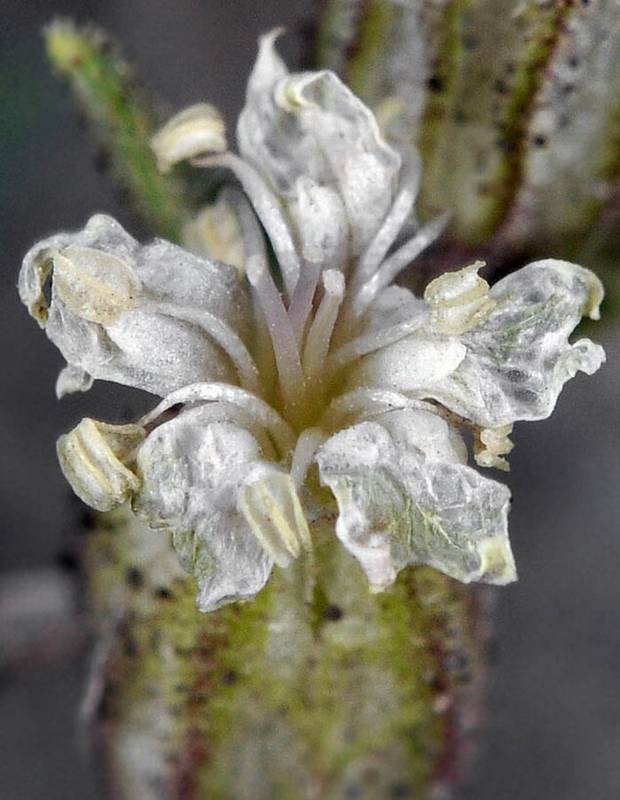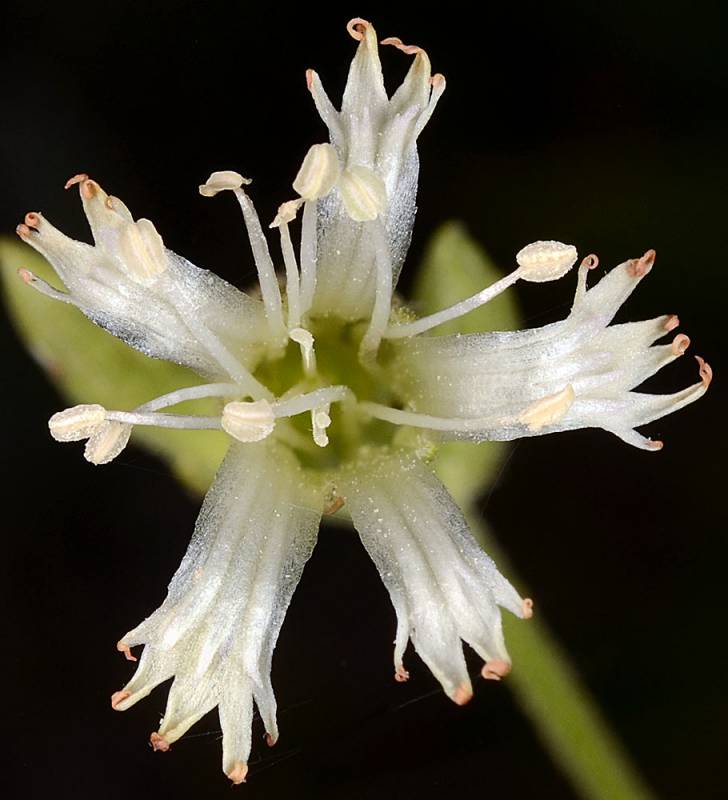Silene suksdorfii
Silene oregana
Cascade catchfly, Suksdorf's catchfly
Oregon catchfly
Basal leaves many, linear to linear-lanceolate, 1-2 cm. long and 1.5-2 mm. broad, sessile;
cauline leaves similar, usually only 1 or 2 pairs.
Flowers few, perfect;
calyx 5-lobed, tubular, 10-12 mm. long, with 10 prominent, purple nerves;
petals 5, white to greenish or lavender, the claw 8-13 mm. long, the blade 3-5 mm. long, bi-lobed less than half its length, usually with small, lateral teeth; appendages 2, 2.5-3.5 mm. long, hairy;
stamens 10;
styles usually 3.
Capsule 1-celled.
Silene suksdorfii
Silene oregana
Occurring on both sides of the Cascades crest in Washington; northern Washington to California.
Occurring chiefly east of the Cascades crest in Washington; Washington to California, east to the Rocky Mountains of Montana and Wyoming, and to northeastern Nevada.
- Local floras:
CA,
OR,
WA
- Local Web sites:
CalFlora,
CalPhotos,
Flora NW,
PNW Herbaria
WildflowerSearch
iNaturalist (observations)
USDA Plants Database
- LBJ Wildflower Center
- SEINet
- Plants of the World Online
- Encyclopedia of Life
- Wikipedia
- Google Image Search



